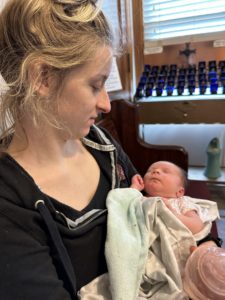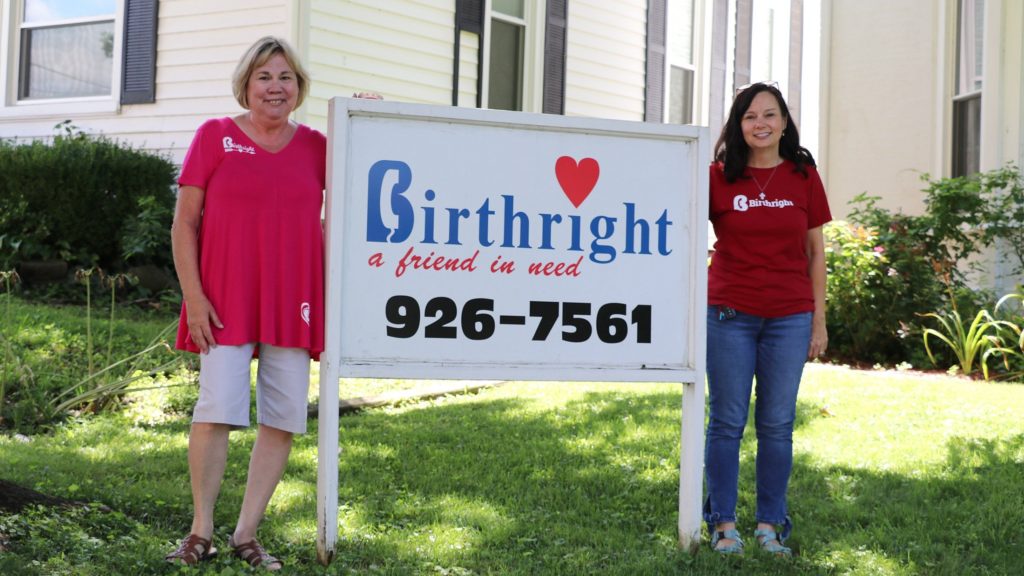Don’t get it twisted. The lazy George Carlin line (parroted by so many over the decades) that pro-lifers only care about the unborn, but not people after birth, was always nonsense.
The pro-life movements, going all the way back to before Roe v. Wade, have been anything but a political monoculture. Democrats, Republicans, and everything in between. Indeed, not least because the Catholic Church played such a leading role, the significance of human dignity for a range of issues — including supporting women and families — was always part of the pro-life movements’ concern.

And that concern shows up today in a major way — especially given the 2,750 pregnancy help centers in the United States alone. They are providing hundreds of millions of dollars of support to women and families every year, support which includes ultrasounds, STD testing, prenatal education programs, and material support like diapers, wipes, car seats, strollers, and cribs.
Beyond this, pro-life groups have established the rights of pregnant students on college campuses, built and run maternity homes, established networks for connecting women and families to existing resources of social support, and have even strategized about ways to make childbirth free.
But, reading the signs of times since Dobbs over the past two years, it is clear that we must do more.
Today, I think it is fair to say the turn of the pro-life movement to women and families is complete. To make that case, I recently worked with Eric Scheidler of Pro-Life Action and Monica Snyder of Secular Pro-Life on a manifesto making the case for the pro-life movement to have a special focus on unwanted and coerced abortion — without abandoning our goals of prenatal justice under law.
Most abortions are in some sense unwanted by the mother (that is, they are structurally or explicitly coerced, or at variance with her values), a terrible situation lamented by both pro-lifers and those who are genuinely pro-choice (as opposed to pro-abortion).
We call for both legislation and other shifts in culture and policy to drop the unwanted abortion rate to zero. And we call for the telling of the difficult stories of abortion coercion as part of making our case to the public (and published three of these stories as well). These stories destroy the idea that abortion is at the service of women’s power, women’s autonomy, and women’s well-being in the culture. The arguments and evidence are overwhelming, but telling and otherwise sharing stories is an essential part of the strategy as well.
We are three leaders in the movement, but by ourselves we don’t constitute anything like consensus. For that, let’s add on the just-released “Blueprint for Life,” signed and supported by a who’s who of pro-life organizations. These include, Students for Life Action, Americans United for Life, American Principles Project, National Hispanic Pastors Alliance, Live Action, American Association of Pro-Life OBGYNs, Family Policy Alliance, Pro-Life Partners Foundation, Human Coalition Action, Heartbeat International, Democrats for Life, And Then There Were None, and many more!
Here are the seven main policy pillars agreed to by the Coalition:
- Providing flexible resources to parents
- Making childcare more affordable
- Supporting healthy moms and babies
- Expanding resources for adoptive and foster parents
- Increasing information availability
- Broadening partnerships with faith-based organizations and nonprofits
- Strengthening opportunities for mentorship and community
Furthermore, as Patrick Brown of the Ethics and Public Policy Center’s Life and Family Initiative has also shown in a new report, confirms that states with significant laws protecting prenatal justice (that would have not been possible before Dobbs) have moved to pass significant legislation supporting women and families. Read the report for yourself, but consider these significant developments:
- 22 of these 23 states have extended Medicaid coverage, increasing the length of time a postpartum woman receives medical care from 60 days to one year
- 16 states took direct action to expand child care choices, from expanding subsidies to streamlining regulatory barriers for child care providers
- 14 states introduced or expanded programs that provide targeted, material assistance to pregnant women, whether directly or by working through pregnancy resource centers
- 13 states increased eligibility for safety net services, from expanding income eligibility thresholds for assistance to eliminating benefit caps based on family size
- 11 states acted to expand access to or coverage of health services for women, such as mammograms or screening for postpartum depression
- 9 states introduced or expanded paid parental leave for state employees, on top of the many states that had already done so prior to the Dobbs decision
There is reason to be proud of this turn to support women and families. Not just because it puts to flight, again, the old chestnut that pro-lifers simply don’t care about people after they are born. But because it is yet more overwhelming evidence that pro-lifers don’t have to choose between supporting women and saving the lives of babies.
As we commemorate the two-year anniversary of Dobbs, let us go confidently into a pro-life future which refuses to choose between prenatal children and their mothers and families.

